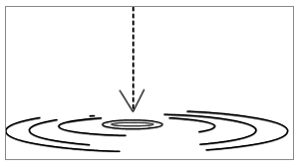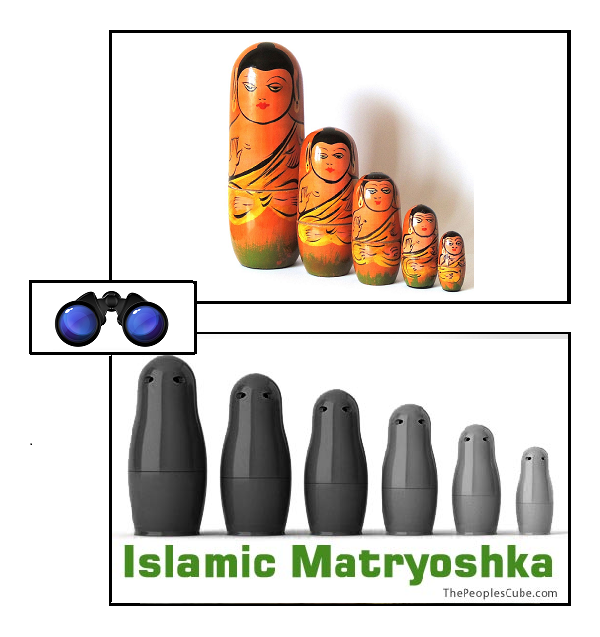China as the balance between DPNK and the US
Saturday, August 12th, 2017[ by Charles Cameron — once again, it’s the formal properties that interest me here ]
.
You may agree or disagreee, but in two-party negotiation I’d say, speaking as a moderator, bridge-builder, peace-maker, there’s a natural parity between the two parties —
— this parity will be there, somehow, even if not immediately apparent, or something is seriously amiss.
**
Here, then, are two of countless ways in which China must handle disparities between the parties, if she is to maintain a balance between the US and Korth Korea:
The population balance — or imbalance — is pretty extreme, and the nuclear arenal imbalance even moreso:
**
I’ve included the moderator (China) along with the two parties in my weightings above, pondering whether it makes a difference when the moderator is “heavier” than either party, or when one party “heavily” outweighs the moderator.
I don’t know, I’m feeling my way towards an intuitive grasp of something here, not presenting a certainty of some kind.
The WaPo article that brought me to these considerations is full of “balance” and “imbalance” imagery..
At issue is “a series of threats and counterthreats by the U.S. and North Korean governments.”
Russia’s foreign minister, Sergei Lavrov, said there had been an “overwhelming amount” of “belligerent rhetoric” from Washington and Pyongyang.
Even-handedly:
China has repeatedly warned both Washington and Pyongyang not to do anything that raises tensions or causes instability on the Korean Peninsula, and it strongly reiterated that message Friday.
In an editorial, the Global Times said China should make it clear to both sides that “when their actions jeopardize China’s interests, China will respond with a firm hand.”
And considering how things can get worse:
China hopes that all relevant parties will be cautious in their words and actions, and do things that help to alleviate tensions and enhance mutual trust, rather than walk on the old pathway of taking turns in shows of strength, and upgrading the tensions.
And better:
“The side that is stronger and cleverer” will take the first step to defuse tensions..
**
All this is, on the one hand, obvious, and barely needs saying — and on the other hand, fascinating and instructive in its abstract formalism. Of course, there are details that I’m omitting to bring that formalism front and center, but you have the WPo article to give you those.
Most interesting, perhaps, is that final observation:
“The side that is stronger and cleverer” will take the first step to defuse tensions..
It reminds me of another quote I included in a post here on ZP recently:
the problem of defense in the modern world is the paradoxical one of finding ways for the strong to defeat the weak.
Paradox, too, is a matter of form, and thus of particular interest when it occurs in an analytic context.
Metaphors, analogies, parallelisms, paradoxes — my stock in trade — are delicate matters, and should be treated with care.
**
Okay, now how do you diagram the balance mentioned in the WaPo article, In dealing with North Korea, Trump needs allies — not bombast?
Tillerson’s impossible job: Balancing North Korea, China and Trump
**
Sources:
Business Insider, Where the World’s 14,995 Nuclear Weapons Are Worldometers, Countries in the world by population (2017)
Washington Post, Beijing warns Pyongyang: You’re on your own if you go after the US
Hat-tip, btw, to xkcd for painstakingly providing the number graphics via the xkcd Radiation page.









